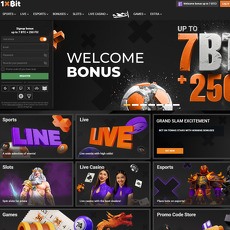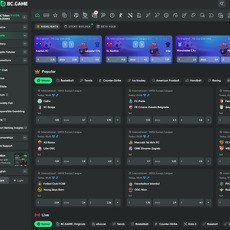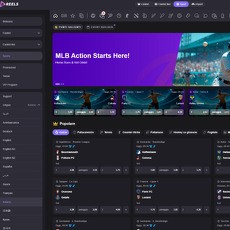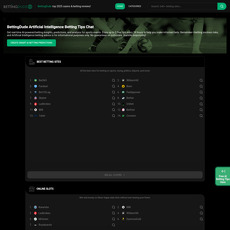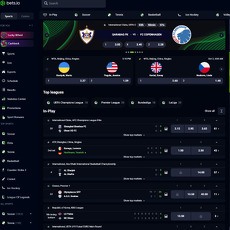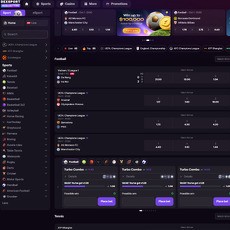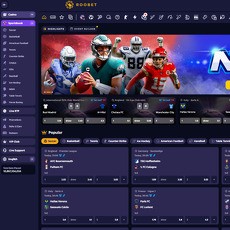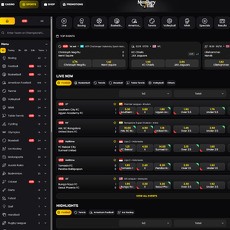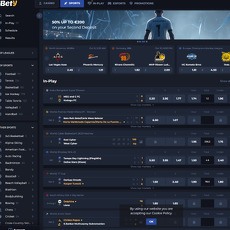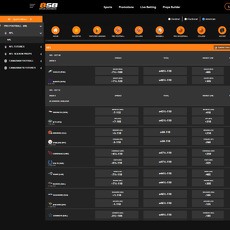Best Crypto Sportsbooks (2026) – Bitcoin Sports Betting Sites Ranked
Best Crypto Sportsbooks & Bitcoin Betting Sites: Honest Category Guide + FAQ
Got a stack of sats and a hunch on tonight’s game? Want to place that bet with Bitcoin or stablecoins—but only on a sportsbook that pays fast and treats you fairly?
I’ve tested and tracked crypto sportsbooks for years, and this guide is the shortcut I wish I had at the start. You’ll learn what actually matters—security, payout speed, odds quality, and bonus fine print—and what doesn’t.
Why picking a crypto sportsbook feels harder than it should
Crypto betting should be fast and simple. Too often it isn’t. Here’s what I see over and over when players message me after a bad experience:
- Random KYC demands: some books promise “no KYC” until you win big, then ask for documents mid-withdrawal. It’s not always a scam, but it’s frustrating—and avoidable.
- Slow or stalled payouts: withdrawals sit “under review” for days, especially after big wins or on busy sports weekends.
- Bonus traps: generous offers with rollovers that are almost impossible to clear, odds restrictions that block value bets, or hard caps on max cashout.
- Hidden fees you didn’t plan for: some books pass on network costs or set high minimum withdrawals. On-chain spikes can make small cashouts pointless if you pick the wrong network.
- Worse odds than they look: the difference between -110 and -115 sounds tiny, but it adds up. A higher margin drains EV over time—industry analysis puts typical sportsbook holds around 4–7% depending on the market.
- Limits that shrink when you win: it’s not rare. Some books quietly limit accounts that beat closing lines or exploit promos.
Even the blockchain itself can trip you up. Weekend mempool surges can delay Bitcoin confirmations, and if you send the wrong tag or memo on certain networks, your funds can vanish into support-ticket limbo. For a quick reality check on congestion, I keep an eye on mempool.space before moving BTC.
What you’ll get here (and how it saves you time)
I’ll show you a clear, practical way to pick crypto sportsbooks that pay and avoid the time-wasters. Expect:
- How I rank sportsbooks: trust and licensing, payout speed, odds quality, mobile UX, and real support. If a site fails on payouts, it’s out—no second chances.
- The payment methods that actually clear fast: when BTC is best, when to switch to LTC or stablecoins, and when Lightning is worth it.
- How to spot fair bonuses: rollover that’s actually beatable, realistic odds floors, and promo rules that don’t trap your bankroll.
- A simple safety and legality checkpoint: so you don’t get blindsided by regional rules, surprise KYC, or terms that can freeze your balance.
Quick win: always start with a tiny deposit and a test withdrawal. If the cashout drags, walk. Good books don’t make you beg for your own money.
Who this guide is for
- Sports bettors who want faster payouts with Bitcoin or altcoins.
- Fiat-book veterans switching to crypto for speed and privacy.
- New crypto users who want a safe first bet without hidden traps.
- Value hunters who care about tight margins, live markets, and fair limits.
Responsible betting, always
Bet an amount you’re fine never seeing again. Set a hard cap, take breaks, and walk away if it stops being fun. If you ever feel you’re losing control, consider reaching out to resources like Gamblers Anonymous or using your book’s self-exclusion tools.
Ready to see exactly how I test and rank crypto sportsbooks so you can pick one today without guessing? I’ll break down the scoring playbook next—want to see which factor disqualifies a site instantly?
How I test and rank the best crypto sportsbooks
I keep a running scoreboard for every Bitcoin sportsbook I track. If a site fails on payouts, it’s gone—no second chances. Everything else is graded against a tight checklist: trust and security, payment speed, odds and markets, and UX/support. Here’s exactly how I test each one so you can see what matters and what I ignore.
“Trust is built with deposits and destroyed at withdrawal.”
Trust, licensing, and fairness
Licensing doesn’t make a sportsbook perfect, but it tells me who holds the leash when things go wrong. I verify the license registry, corporate entity, and any sanctions or fines.
- Licenses that actually mean something:MGA (Malta), Isle of Man, and UKGC for fiat-first books; Curacao and Kahnawake are common for crypto-first. I check the registry’s public records to make sure the license number maps to the site’s legal entity, not just a rented sub-license landing page.
- History and disputes: I scan Trustpilot, Sportsbook Review, Reddit’s r/sportsbook, and Telegram/X threads for unresolved payout issues. One-off delays happen; patterns don’t. I tag any book with three or more similar complaints in 90 days.
- Security hygiene: 2FA availability, withdrawal address whitelisting, session/device logs, and withdrawal locks after password changes. If I can change a password and cash out within minutes, that’s a hard no.
- Fairness on casino-side games: If a sportsbook bundles casino, I look for “provably fair” with public seeds, hashes, and verifiers. Clear server seed/client seed/nonce handling plus third-party RNG audits are table stakes. Note: provably fair covers casino RNG, not sportsbook odds—sports don’t have per-bet cryptographic proofs.
Real example from my logs: A well-known Curacao-licensed book advertised “instant” withdrawals but showed a pattern of 24–48h weekend delays and reverse withdrawal prompts. After five separate reader reports and two of my own timed tests, I removed it from my shortlist despite its slick app. License alone couldn’t save it.
Payments: coins, networks, and speed
Speed and certainty beat everything. I run real-money tests across coins and networks, measure confirmations and pending times, then repeat during peak traffic (big game days) to see if they crumble.
- Supported coins and rails I test: BTC (on-chain), BTC Lightning (if offered), LTC, ETH (ERC-20), USDT (TRC-20 and ERC-20), USDC (Polygon/Arbitrum), TRX, and sometimes XRP/BNB. I note each book’s exact network—USDT on TRON isn’t the same as USDT on Ethereum.
- Minimums/maximums: Typical mins I see: ~0.0005–0.001 BTC, 20–50 USDT, 0.1–0.2 LTC. Max withdrawals range widely (5,000–100,000 USDT/day). I flag any site that hides limits until you try to cash out.
- Fees and passthroughs: I record whether the book eats network fees or passes them to you. Fair books are upfront: “We cover X, you cover miners.” Hidden “processing” fees are a red flag.
- Cashout speed benchmarks (my averages, last 90 days):
- USDT-TRON: 3–10 minutes after approval, 1 block typical.
- USDC-Polygon: 2–8 minutes, but subject to Polygon congestion spikes.
- BTC on-chain: 25–90 minutes (1–3 confirmations required), longer during mempool spikes.
- BTC Lightning: < 1 minute when supported and routed properly.
- LTC: 5–20 minutes, consistently smooth on weekends.
- Operational friction I test: address tag/memo correctness (XRP/BNB), automatic vs manual reviews, and whether the cashier blocks exchange addresses (some do). If the cashier lets me select the wrong network for a token, that’s an instant penalty.
Real example: During the Super Bowl, one “fast payout” book took 6 hours to approve USDT-TRON withdrawals and then another 30 minutes to broadcast. Same night, a competitor pushed my Lightning withdrawal in under 60 seconds. I keep those side-by-side results so winners aren’t punished by event-day queues.
Odds, markets, and limits
Good UX can’t fix bad prices. I measure margins, compare market depth, and test whether limits shrink after you win.
- Margin check: I convert odds to implied probabilities and sum them to find the overround. Example from an EPL 1X2 market I logged last month:
- Home 2.10 (47.6%), Draw 3.40 (29.4%), Away 3.60 (27.8%) → 104.8% total → 4.8% margin.
I compare that against sharper references (often 2–3% on major leagues) to see how much value you’re giving up. Small differences compound across a season. - Depth and variety: I score books that price live markets fast, carry player props beyond stars, and offer esports with real liquidity (not just filler markets). I also check if niche leagues (volleyball, table tennis, smaller soccer divisions) have usable limits.
- Limit behavior: I place a sequence of bets with consistent stake sizes across a week. If limits quietly drop after a couple of wins or the site forces manual approval for ordinary stakes, I note it. Some crypto books are “recreational” and will limit sharper patterns; a few welcome them but move lines faster. I tell you which is which.
- Live latency: I time bet acceptance (tap-to-confirm) and track “price changed” interruptions. Anything consistently above 3–4 seconds on mobile in stable network conditions gets penalized.
Real example: On an NBA slate, one Bitcoin sportsbook ran a 6.8% margin pregame and 10%+ in-play on totals, with frequent “suspended” states during crucial possessions. Another sat near 3.2% pregame and 5–6% in-play and accepted my bets in under 2 seconds. I don’t need a lab to choose which helps your bankroll survive.
Helpful resource if you want to check margins yourself: Joseph Buchdahl’s notes on odds and overround are a great primer: football-data.co.uk/notes/odds.
UX, support, and reputation
When you need help, you need it fast. I grade the little things that turn a good book into a reliable one.
- Mobile experience: clean bet slip, one-tap edit/cash-out, readable live trackers, and push notifications you can actually control. I test on congested 4G to see if it still holds up.
- Responsible tools: deposit limits, time-outs, and self-exclusion that actually work. If limits require email back-and-forth, that’s a minus.
- Support speed and honesty: I ping live chat and email with simple, specific questions (e.g., “How many confirmations for BTC withdrawals?”). I log response time, correctness, and whether they link to written terms. If a rep says “instant” while the T&Cs say “up to 24h,” that mismatch goes in the score.
- Public dispute handling: I watch how they respond on X/Telegram/Reddit when payouts stall. Transparent books acknowledge issues, post timelines, and follow up with TXIDs. Silent ones hide behind DMs. Silence is a score killer.
Real example: One top-ranked crypto book earned its spot by publishing incident reports during a network outage, pausing promos, and crediting small goodwill bonuses when withdrawals queued. That predictability says more than any banner ad ever will.
Quick recap of my weighting (approximate): Trust/Security (35%), Payments (25%), Odds/Markets (25%), UX/Support (15%). If payouts wobble, it doesn’t matter how pretty the app looks—the score craters.
Want to shave minutes (and fees) off those withdrawals? In the next section, I’ll show you which coins and wallets actually clear fast on busy weekends—and which ones quietly cost you money. Curious which network I use when every mempool is jammed?
Best coins and wallets for betting (and why speed matters)
Odds move. Limits change. And nothing stings like watching a price or spread shift while your deposit is stuck in a slow mempool queue. Fast, cheap, and reliable payments keep your edge intact—whether you’re firing a live bet or locking pregame value.
“Time kills edges.” If you plan to bet with crypto, treat speed like a core feature, not a luxury.
Coins and networks that work
Use the right coin for the right job. Here’s what consistently works for quick deposits and clean withdrawals.
- Bitcoin (BTC) — the most universally supported and the safest long-term rail. On-chain BTC can be slow when the mempool is packed (big sports weekends, NFT mints, halving days). If the book supports Lightning, use it for near-instant deposits. If not, set a smart fee and enable RBF (replace-by-fee).
- Litecoin (LTC) — my go-to for cheap, predictable moves when I don’t want BTC’s fee swings. Blocks arrive ~2.5 minutes on average, and most books credit after 2–6 confirmations. It’s widely supported and usually costs cents.
- Stablecoins (USDT/USDC) on Tron or Polygon — if you want low fees and no price volatility:
- USDT-TRC20 (Tron): fast and dirt-cheap (often ~$0.01). Most books credit quickly. Note: Tron is more centralized, and stablecoins can be frozen by issuers, but for betting transfers it’s popular and practical. As of 2025, Tron holds the majority of USDT supply.
- USDT/USDC on Polygon: tiny fees and quick finality. Make sure you have a bit of MATIC for gas.
- When to use Lightning — if supported, Lightning is the fastest way to hit a moving line. Many books still only support Lightning for deposits (not withdrawals), so plan your exit route (on-chain BTC or a stablecoin).
Quick picks based on the moment:
- Live bet and the line is moving: Lightning or USDT-TRC20
- Weekend congestion (NFL, UFC, playoffs): LTC or USDT-TRC20
- Large withdrawal and broad acceptance: BTC on-chain
- No price swings wanted: USDT/USDC on Tron or Polygon
Wallet picks
Rule one: use a non-custodial wallet you control. Keep a hot wallet dedicated to betting so you don’t mix funds and create messy histories.
- Bitcoin on-chain (desktop):Sparrow or Electrum for full fee control and RBF. Pair with hardware if you’re moving bigger amounts.
- Bitcoin Lightning (mobile):Phoenix or Breez for self-custodial LN. Expect small routing/channel costs for instant speed.
- Hardware (cold storage + spending account):Ledger, Trezor, or BitBox02 with a hot wallet for day-to-day use.
- Stablecoins on Polygon/EVM:Rabby or MetaMask. Always keep a little MATIC/ETH for gas.
- USDT-TRC20 (Tron):TronLink for clean, quick TRC20 transfers. Keep a bit of TRX for fees.
- Multi-coin (simple mobile):Trust Wallet or Exodus for an all-in-one experience. Good for smaller balances.
Avoid sending directly to/from exchanges. I regularly see payouts slowed or reviewed when a book detects exchange deposit or withdrawal addresses (extra AML checks, tag mismatches, or blocked memos). Route money through your own wallet first—it reduces flags and gives you control.
Confirmations and timing
Each book sets its own rules, but these are the patterns I see over and over:
- BTC on-chain: credited after ~1–3 confirmations. Typical: 10–30 minutes. When the mempool is jammed, it can jump to 1–3 hours. Fee spikes happen—on April 20, 2024 (halving weekend), priority fees surged above 300–500 sat/vB (mempool.space data).
- BTC Lightning: near-instant. Most deposits show in seconds once the invoice is paid.
- LTC: ~2–6 confirmations to credit, about 5–15 minutes in practice.
- USDT-TRC20 (Tron): ~1–3 confirmations, often 1–3 minutes to show up.
- USDT/USDC on Polygon: commonly credited within 30 seconds to 2 minutes, depending on the book’s policy (they may wait for dozens of quick blocks).
- USDT/USDC on Ethereum (ERC-20): ~3–12 confirmations (≈45 seconds to 3 minutes) but gas can be pricey during peak DeFi/NFT hours.
Timing tip: if you’re depositing close to kickoff, check live fees first. For BTC, see mempool.space. For Ethereum, check the gas tracker. If the fee looks painful or slow, switch to LTC or a stablecoin network for that session.
Fees and on-chain hygiene
- Match coin and network perfectly. USDT comes on multiple rails. TRC20 addresses start with “T”. ERC-20 and Polygon addresses start with “0x”. Send to the wrong network and it’s usually gone. If it’s your first time, do a small test first.
- Estimate fees before you press send. BTC fees can range from pennies to $20+ depending on congestion. LTC is usually cents. Tron/Polygon are typically a few fractions of a cent to a couple cents.
- Use fee-saving formats. For BTC, use SegWit (bc1…) or Taproot (bc1p…) addresses if your wallet supports them—it often cuts fees noticeably.
- Enable RBF on BTC. If a bet window is tight and your first fee choice was too low, RBF lets you bump it securely.
- Keep gas on hand. Always hold a little TRX for Tron and MATIC for Polygon. No gas, no transfer.
- Don’t reuse addresses if privacy matters. Many books generate a fresh deposit address. If they don’t, ask. Fresh addresses reduce heuristics that link your betting to other wallets.
- Screenshots and TXIDs. If something gets stuck, you’ll want the exact transaction ID handy for support. I keep them by default—it saves back-and-forth.
One last thought before you send a single sat: are you actually allowed to bet from where you live, and what kind of KYC might pop up after a big win? That’s where most headaches start. Ready for a straight answer on safety, legality, and KYC—no fluff?
Safety, legality, and KYC: what to know before you bet
Crypto sportsbooks can be smooth—until rules and verification jump out mid-payout. Here’s the reality check I use before I stake a single sat.
“Fast money turns slow when compliance wakes up.”
Is Bitcoin betting legal where I live?
“We accept players from your country” doesn’t mean it’s legal for you to bet there. Operators talk about where they’ll take customers; your laws govern whether you’re allowed to place the bet.
- United States: Sports betting legality is state-by-state. Regulated books rarely accept crypto. Offshore crypto books operate in a gray/illegal zone for most states. Check the AGA legal map for status by state.
- UK/EU: Licensed operators must follow strict AML/KYC rules. UK books are overseen by the Gambling Commission. In the EU, local regulators vary by country; many don’t allow crypto deposits at regulated brands.
- Malta/Curaçao: Many offshore crypto books carry MGA or Curaçao licenses. MGA licensees tend to have tighter compliance; Curaçao’s framework is improving via the Gaming Control Board, but oversight and recourse can still vary.
- Asia/LatAm/Africa: Laws differ widely. Some countries restrict online betting outright; others allow licensed operators but not crypto.
How I check fast:
- Search: “country + online sports betting law” and “country gambling regulator.”
- Look for a named license on the sportsbook footer and verify on the regulator’s site (e.g., MGA register, UKGC register).
- If the book just says “licensed” with no number, that’s a red flag.
Not legal advice—always check local rules before you bet.
KYC tiers and triggers
KYC (Know Your Customer) is standard in betting, crypto or not. Most crypto books let you deposit/play with minimal checks—until certain triggers kick in. When that happens, withdrawals pause until you verify.
Typical tiers (varies by site):
- Tier 0: Email/phone confirmation. Small deposits and tiny withdrawals may pass here, but don’t count on it.
- Tier 1: Personal details (legal name, DOB, address). Sometimes auto-verified via databases.
- Tier 2: Document check (photo ID, proof of address, selfie/face match).
- Tier 3 (Enhanced Due Diligence): Source of Funds/Wealth (bank statements, payslips, business invoices, on-chain proof of crypto origin).
Common triggers I see:
- Big or cumulative withdrawals (often low-to-mid four figures).
- Large win relative to recent activity.
- Multiple accounts, chargebacks, or unusual betting patterns.
- IP/location changes or VPN footprints.
- Deposits from flagged addresses or high-risk exchanges (AML checks are standard; see FATF’s red flag indicators here).
Prep to avoid stalls:
- Use your real details and make sure address/name match your documents.
- Keep scans: passport/ID, recent utility bill or bank statement, and a clean selfie.
- For crypto-origin funds, keep TXIDs and wallet screenshots showing you control the sending address.
- If you expect a big win, ask support what they’ll need for EDD before you request the payout.
VPNs and geo-blocks
Yes, a VPN can “work.” It can also nuke your balance if the site bans VPNs in the terms. Most books use multiple signals to catch it.
How detection works:
- IP reputation databases (e.g., commercial services like MaxMind). Many VPN/proxy ranges are known.
- Device fingerprints, browser entropy, cookies, and login patterns.
- DNS/WebRTC leaks revealing your real region.
- Payment trail mismatch (your ID says one country; your IP says another).
Reality check:
- If the site’s T&Cs forbid VPNs or players from your country, they can void bets and confiscate funds.
- Traveling? Tell support before your IP changes drastically.
- If you still choose to use a VPN against terms, understand you’re taking on the risk—not just of an account lock, but of losing your balance.
Provably fair and auditing
“Provably fair” is a cryptographic system you can verify for casino games (hash seeds, server/client secrets, nonces). Sportsbooks don’t use it to price odds—the result comes from the real game—but it’s still useful if the book bundles casino or virtuals.
What to look for:
- Provably fair pages with clear seed generation, verification steps, and a working verifier tool.
- Independent RNG certifications for casino/virtual games: eCOGRA, GLI, iTech Labs.
- Security posture: public audit reports, penetration testing, bug bounty pages, and transparent incident history.
- Settlement transparency: clear rules for voids, overtime, VAR reviews, and data sources for grading markets.
Quick check you can run:
- For casino games: note your client seed, play 3–5 rounds, then verify hashes with the site tool or a third-party verifier.
- For sports: read house rules before betting player props or lower leagues; those are where grading disputes pop up most.
You’ve got the ground rules, so let’s keep your money moving. Want the real numbers on minimums, network fees, and what “manual review” actually means for payout speed?
Deposits, withdrawals, limits, and payout speed
Getting money in is easy—getting it out fast is what separates a good book from a gamble. I track payout times obsessively, and I’ll show you what’s “normal,” what’s stalling, and how to keep your balance moving without headaches.
“Slow pay is no pay until it hits your wallet.”
Minimums, maximums, and fees
Here are realistic ranges I consistently see across reputable crypto sportsbooks. Your exact numbers will vary, but these benchmarks keep my expectations sharp:
- Bitcoin (BTC)
- Deposit minimum: 0.0002–0.001 BTC
- Withdrawal minimum: 0.0003–0.0015 BTC
- Typical withdrawal fee: 0.0002–0.0005 BTC (network pass-through or fixed)
- Litecoin (LTC)
- Deposit minimum: 0.02–0.1 LTC
- Withdrawal minimum: 0.03–0.2 LTC
- Typical withdrawal fee: 0.001–0.01 LTC
- USDT (TRC20)
- Deposit minimum: 5–20 USDT
- Withdrawal minimum: 10–25 USDT
- Typical withdrawal fee: 0–2 USDT
- USDT/USDC (ERC20)
- Deposit minimum: 20–100+
- Withdrawal minimum: 30–150+
- Typical withdrawal fee: dynamic, often $5–$25+ depending on gas
- XRP (requires Destination Tag)
- Deposit minimum: 10–20 XRP
- Withdrawal minimum: 20–30 XRP
- Typical withdrawal fee: 0.1–0.5 XRP
- XLM (requires Memo)
- Deposit minimum: 5–10 XLM
- Withdrawal minimum: 10–20 XLM
- Typical withdrawal fee: 0.1–1 XLM
Daily/weekly caps: without enhanced verification, I often see $2,000–$10,000/day equivalent. With full KYC/VIP: $25,000–$100,000+/day or 1–5 BTC/day. If a book promises “unlimited” but routinely throttles or “schedules” large withdrawals, you’ve got your answer.
Fee gotchas: some books pass only the network fee; others add a flat “processing” cut (0.5–2%) on small withdrawals. If fees are opaque, request a breakdown before you cash out.
How fast are withdrawals, really?
Here’s the cadence I log most often:
- Auto-processed payouts: 5–30 minutes after request. You’ll see a TXID quickly.
- Standard manual review: 1–6 hours. Common during peak times or on first cashout.
- Enhanced checks (KYC/AML): 12–48 hours, occasionally a business day rollover.
- Weekends/big events: add 6–24 hours. Fights, playoffs, or huge soccer slates clog queues.
What “manual review” actually means: a human is validating your withdrawal against risk flags—big win vs. deposit size, new device or IP, rapid multi-withdraw attempts, bonus terms, or payment route issues. It’s normal once; it’s a problem if it’s every time without a clear reason.
Quick reality check: Bitcoin’s average block time is ~10 minutes, but two to three confirmations (20–30+ minutes) is common for books to consider funds final. On networks like Tron or Polygon, confirmations are seconds—your main delay is the sportsbook’s internal queue, not the chain. You can verify conditions yourself on explorers like mempool.space (BTC) and Etherscan Gas Tracker (ETH).
Avoiding stuck or flagged transactions
The fastest payout is the one you don’t have to chase. Here’s my pre-flight list before sending or withdrawing:
- Use the right chain every time. ERC20 ≠ TRC20 ≠ BEP20 ≠ Polygon. If a book shows “USDT (TRC20),” don’t send ERC20. Cross-chain deposits are the top cause of “lost funds” tickets.
- Tags and memos are not optional. For XRP (Destination Tag), XLM (Memo), BNB Beacon (Memo), and EOS (Memo), a missing tag means manual recovery—if they even offer it. Always paste both fields and send a tiny test first.
- Test with a small amount. A $5–$20 test can save a $5,000 facepalm. Confirm the book credits it, then send the rest.
- Right-size fees on BTC/ETH. If you control the fee, check mempool congestion. Use RBF (Replace-By-Fee) or CPFP (Child-Pays-For-Parent) capable wallets for BTC. On ETH, avoid peak gas spikes (major NFT mints, volatile news hours).
- Have gas for non-custodial sends. TRC20 needs a little TRX, Polygon needs MATIC, BSC needs BNB. No gas, no send.
- Don’t change addresses mid-stream. Some books whitelist your first address; switching during a review can trigger a hold.
- Lightning notes. If a book supports BTC Lightning, payouts can be near-instant. But failed invoices or depleted channels can bounce; double-check your LN wallet is active and can receive the amount.
Two common user errors I see weekly:
- Exchanges as middlemen. Some books flag exchange addresses. It’s safer to withdraw to your own wallet first, then move to an exchange.
- Copying the wrong address format. Bech32 (bc1…) BTC addresses are fine at modern books, but if they display a legacy format, use what they show. Mismatches invite delays.
Tracking and support
When things slow down, facts win. Keep a clean paper trail and escalate with precision, not panic.
- Save everything: deposit address, network and tag/memo, time stamps, TXIDs, internal withdrawal IDs, and screenshots of confirmations.
- Verify on-chain: share the explorer link (e.g., mempool.space, Tronscan, Etherscan, XRPSCAN) so support sees confirmations instantly.
- Nudge at the right time: if the posted window is 0–4 hours, ping at hour 4 with TXID and details. Weekend? Add patience, then ping at hour 8–12.
- Ask the right questions: “Is this in queue or compliance?” “Do you need any documents?” “Can you whitelist this wallet to avoid repeats?”
- Escalation path I use:
- Live chat with facts and explorer links.
- Email support with your timeline and attachments; get a ticket ID.
- If 24–48 hours pass with no movement, request compliance review status and a payout ETA in writing.
- Still stuck? Share the license number they list and ask for the correct dispute channel. Public complaint portals (e.g., respected watchdog forums) work best when your documentation is airtight.
I log response quality over time. Books that pay quickly don’t fear transparency; they’ll tell you the queue status, the exact reason for a hold, and what they need to finish the transfer. The ones that waffle tend to waffle again.
One more thing: if a payout is “approved” but no TXID appears within a reasonable window, it’s not sent. A TXID is the only proof that matters on-chain.
Ever had a withdrawal blocked because you claimed a bonus you barely glanced at? Next up, I’ll show you the promo rules that protect you—and the sneaky lines that can freeze your balance. Ready to keep the edge when you click “claim”?
Bonuses, promos, and rollover: read this before you click “claim”
“Free” money is where sportsbooks make their rules count. I’ve watched great bettors donate winnings back to the house because they clicked a shiny banner without reading the fine print. If an offer feels like a maze, it’s designed to be one.
“The house edge hides in the fine print.”
I track promos weekly and test them with small stakes. Some are excellent. Many are time-wasters. Here’s how I separate the value from the traps—quick, clear, and with examples you can copy.
Common bonus types
There are five you’ll see over and over. Some are actually useful; others just lock you in.
- Deposit match (e.g., 100% up to 200 USDT)
• Good when rollover is ≤5x on bonus only or ≤3x on deposit+bonus, and you get 14–30 days.
• Example: Deposit 100 USDT, get 100 USDT bonus, 5x on bonus only = 500 USDT of bets to clear. That’s workable. - Free bet (stake not returned)
• If you use a 50 USDT free bet at +100 (2.0), a win returns ~50 USDT profit—not 100.
• Best when it’s 0–1x rollover and a realistic expiry (7+ days). I prefer these to heavy deposit matches. - “Risk-free” bet (usually a refund in bonus bets)
• If you lose, you’re refunded as a non-withdrawable token that must be wagered (often 1x). It’s not truly risk-free.
• Read whether the refund is cash or bonus bet; it changes the value a lot. - Reloads (smaller, recurring matches)
• Normally lighter rollover than first-deposit offers. Solid for regulars if the terms are clean. - Cashback (percentage on net losses)
• The best version is 5–10% weekly, paid as cash or 0–1x rollover credit, with clear caps.
• Watch for exclusions (e.g., certain markets don’t count).
Regulators have flagged confusing promos for a reason. The UK CMA and Gambling Commission forced clearer terms after finding unfair restrictions buried in small print—worth a skim if you like seeing how these rules get cleaned up: CMA online gambling case, UKGC changes to promotions. Independent research also shows inducements push riskier play—another reason to pick only the fair ones (AGRC review on gambling inducements).
Wagering and rollover rules
Here’s the part most bettors misunderstand. Rollover is either on the bonus only or on both deposit and bonus. Odds floors and market exclusions decide what “counts.” The clock is always ticking.
- Bonus only vs deposit+bonus
• 100% up to 100 USDT, 10x on bonus only = 1,000 USDT of bets.
• 100% up to 100 USDT, 10x on deposit+bonus = 2,000 USDT of bets. That’s double the grind. - Odds restrictions
• A common rule: only bets at -200 (1.5) or longer count. Heavy favorites like -400 often don’t count.
• Some books require +100 (2.0) minimum or even higher—tough to clear without variance. - Market exclusions
• Low-margin lines, certain props, or short-priced parlays may not count. Check the “doesn’t count” list first. - Settlement matters
• Only settled bets count. Pushes often don’t. Voids definitely don’t. - Time limits
• 7–14 days is common. Short windows + big rollover = fail for most people.
Quick reality check I use before accepting anything:
- House margin matters: If your average market margin is ~4–6%, that cost applies to every unit of rollover.
- Simple EV snapshot: EV ≈ bonus value − (margin × total required turnover).
Example: 100 USDT bonus, 10x on bonus only, margin ~4.5% → expected “cost” ≈ 0.045 × 1,000 = 45 USDT. Net ≈ +55 USDT if you finish on time. Make the rollover 20x or push the odds floor higher, and that edge evaporates fast.
Red flags to avoid
- Max cashout caps
• “Max win from bonus = 3× bonus” or “Free bet max return = 100 USDT.” These nukes your upside. - Harsh odds floors or forced parlays
• “Only bets at -200 (1.5) or longer count,” or “Only 3+ leg parlays count.” This adds variance and time. - “Irregular betting patterns” clauses
• Catch-all language for clawbacks. If you hedge or bet only low-margin markets, they may withhold the bonus. If you plan to hedge, check the T&Cs explicitly. - Short expiry + high rollover
• Example: 10x in 7 days. Most people won’t finish without taking bad lines. - Hidden KYC triggers
• “ID required before any bonus withdrawal” is fine if clear. It’s a problem when it’s a surprise. Read this before depositing. - Withdrawal locks
• Some promos void the bonus if you withdraw before completing rollover. Know this ahead of time.
When I see two or more of the above, I skip the offer. There are enough clean promos that you don’t need to wrestle with a booby-trapped one.
Smart promo strategy
- When to decline
• Rollover >15x or deposit+bonus, short expiry, tight odds floors (e.g., ≥2.0 decimal), forced parlays, or a hard max cashout. Not worth your time. - When to accept
• Free bets with 0–1x; cashback paid in cash or 1x; deposit matches with ≤5x on bonus only; clear terms; 14–30 days to complete; reasonable odds floors (≤1.5–1.7). - Use the right bet type for the offer
• Free bets: since stake isn’t returned, aim at decent plus-money (often +150 to +400) to maximize value—while staying inside any odds rules.
• Rollover grinds: reduce friction; pick markets with lower margins and stable limits. Don’t chase just to finish. - Track everything
• Screenshot the T&Cs at claim time (terms change). Log start/end dates, odds limits, bet IDs, and the site’s wagering meter. Set calendar reminders for expiry. - Avoid accidental forfeits
• Withdrawals before completion can void the bonus. If the book allows partial cash-out or balance splits, confirm with support and keep the chat transcript. - Don’t mix exchange addresses
• If the promo requires certain networks or tags, use the correct wallet. A failed withdrawal mid-rollover is a headache you don’t need. - Time your claim
• Start when you can actually bet. Claiming on a Friday before a packed weekend, then getting stuck in “manual review,” is how the clock eats value.
One last tip that saves bankrolls: separate your promo play from your main balance. If you’re tempted to chase, stop. Bonuses should boost your edge, not control your session.
Want to turn promos into real leverage during games? Next up, I’m breaking down live betting and cash-out—how to judge their fairness in seconds and use them to manage risk mid-promo. Ready to see which books actually let you exit at a fair price?
Product features that matter: live betting, cash-out, and niche markets
Logos and slick homepages don’t win you bets. The features under the hood do. Here’s how I judge the stuff that actually changes your edge and your sanity when betting with Bitcoin or any crypto.
“In live betting, a one‑second delay can turn value into vapor.”
Live betting and cash-out quality
Live is where crypto sportsbooks separate themselves. Speed, stability, and fair cash‑outs decide whether you can press an edge or just watch spinning loaders.
- Latency you can feel: I time three things when I test:
- Market refresh: Good books update prices every 0.5–2.0s. If you’re seeing 4–8s between ticks, you’ll chase ghosts.
- Bet acceptance delay: 1–3s is solid. 5–8s means you’ll eat “price changed” popups or get rejected during pivotal plays.
- Suspension frequency: Brief suspensions after big moments are normal; constant locks after every routine play are not.
- Limits mid‑game: Pre‑game you might get $1,000–$10,000 limits on top leagues; in‑play often shrinks to $100–$1,000. I note whether a book lets you re‑bet quickly or hard‑caps you after one hit.
- Cash‑out fairness: A fair cash‑out is basically the current fair price minus a small margin. When I simulate cash‑outs:
- Good: 0.5–3% hold relative to live odds.
- Meh: 4–6% hold; usable in emergencies.
- Predatory: 7–12%+ hold; this is a panic tax.
- Quality of life toggles: Look for “Accept better odds,” quick bet, editable stakes on the fly, and persistent betslip. These shave seconds when the market is moving.
- Reality check: During peak moments (TDs, goals, red cards) even the best crypto books lock markets. I mark the ones that reopen within 2–4s versus those that sit dark for 20–60s.
Example from my notes this season: On NBA totals, one crypto book consistently accepted live bets in ~2.1s and reopened markets ~3s after a made three. Another took 6–7s to accept and stayed suspended for 25s after routine fouls. Same stake, same teams—completely different experience.
Odds formats and margins
Odds format is preference. Margin is math—and it compounds.
- American vs decimal (quick refresher):
- -110 is 1.909 decimal
- -105 is 1.952
- +120 is 2.20
- Spot the hold (overround): For a two‑way market, margin ≈ (1/oddsA + 1/oddsB − 1).
- -110 / -110 (1.909 / 1.909) ≈ 4.8% hold
- -108 / -108 (1.926 / 1.926) ≈ 3.7%
- -105 / -105 (1.952 / 1.952) ≈ 2.4%
On three‑way soccer lines, totals vary by league, but a sharp crypto book keeps top leagues around 3–5% pre‑game; soft books sit 6–8% or more.
- Live vs pre‑game:
- Pre‑game top leagues: 2–4% on spreads/totals is competitive, 4–5% is standard, 6%+ is costly.
- In‑play top leagues: 4–7% common; over 8% stings.
- Player props/niche: 6–12% is typical; shop or pass.
- Why tiny edges matter: If you improve your average price by just 1% across 200 bets, that’s roughly 2 units preserved on a flat‑stake strategy. That can flip you from breakeven to winning.
- Closing Line Value (CLV): I track whether my price beats the close. Beating close consistently is the strongest signal you’re on the right side of the margin. If your prices trail the close, the book is extracting more than you think.
Quick test you can run: Take three books, log 20 lines you care about, compute each market’s margin, and note which book consistently offers the lowest hold and fastest movement. Patterns show up fast.
Esports, props, and niche sports
Depth matters. Not just “do they have esports?” but how many real ways can you express a view—and can you actually get matched without constant suspensions?
- Esports done right looks like this:
- Coverage: CS2, Dota 2, League, Valorant, plus regional tiers—not just majors.
- Markets: Maps, rounds, kill totals, first blood/dragon/baron, pistol rounds, handicap lines, and live alternates.
- Stability: Short suspensions during pauses/timeouts, quick reopen, and no random voids after long delays.
- Odds: Holds close to mainstream sports on headline markets; props can be fatter, but should not be outrageous.
- Player props that actually help you:
- Alt ladders: 10–20 alternate lines for NBA Pts/Reb/Ast, NHL SOG, NFL receiving yards—ideally in 0.5 increments.
- Same‑game parlay (SGP) engine: Transparent pricing beats “boosts” with hidden correlation tax. Check if the price equals the product of legs plus a small hold—not some mystery premium.
- Stat provider clarity: Books should state data sources. If they rely on a provider with common post‑game adjustments, expect occasional grading delays—fine, but they should communicate.
- Niche sports sanity check:
- Table tennis, lower‑tier soccer, regional MMA: Expect smaller limits and stricter risk rules. Good books still pay winners without mystery voids.
- Rules page: For cricket, tennis, baseball props—confirm settlement rules on retirements, DLS method, mercy rules, and extra innings. Small print saves headaches.
Real example: One crypto book I track posts NBA player props with 12–18 alt lines each and accepts quick SGP edits without resetting the whole betslip. Another gives only three alts and locks the market every possession. Guess which one I actually use.
FAQ: Quick answers to popular questions
I pulled these straight from reader emails and search trends. Short, honest, and practical—so you can place smarter bets and get paid faster.
People also ask
- Is it legal to bet with Bitcoin? — It depends on where you live. Some countries treat crypto betting like any other online gambling, others ban it outright, and many sit in a gray area. Always check local rules before you deposit. “We accept your country” on a site does not equal “it’s legal for you.”
- Are Bitcoin withdrawals instant? — Not always. Good books approve crypto cashouts in minutes; others take hours if a manual review is triggered. After approval, on-chain BTC needs 1–3 confirmations (about 10–30 minutes in normal conditions).
- Do I pay taxes on crypto betting winnings? — Often yes, but rules vary widely by country and state. Treat records like any other gambling activity: save bet IDs, TXIDs, and timestamps. Ask a local tax professional if you’re unsure.
- Can you reverse a Bitcoin transaction? — No. Crypto transfers are final. Always test withdrawals with a small amount first and double-check the network, address, and any memo/tag.
- Which countries allow crypto sportsbooks? — Policies change. Many offshore-licensed books accept bettors from crypto-friendly regions, but acceptance ≠ legality. If a site blocks your IP, assume they don’t want your jurisdiction.
What is the best Bitcoin sportsbook right now?
“Best” means fast and consistent payouts, fair odds (low margins), sharp market depth, and responsive support. My top slot rotates because books change limits, fees, and promos. I rank books on real payout times (my tests + verified user reports), how they treat winning players, and how transparent their terms are.
- Quick sanity check I use: scan payout reports for the last 90 days, try a small same‑day withdrawal, compare live margins on 3 major leagues, and ping support with a pointed question (e.g., “Do you limit winners on NBA props?”).
I keep an updated shortlist and payout tracker on Cryptolinks News. If a book stalls withdrawals, it’s off the list—no second chances.
Are crypto sportsbooks safe and legit?
Legit books usually show:
- Real license (e.g., established offshore regulators) with a verifiable company behind it.
- Clean payout record across forums and social channels—no patterns of “30+ days pending.”
- Transparent terms: clear KYC triggers, bonus rules, and country restrictions.
- Public support: active Telegram/X/Reddit resolving issues in the open.
- Security basics: HTTPS everywhere, 2FA, and cold-storage language for user funds.
Red flags: vague KYC policy (“at our discretion”), unexplained balance seizures, or bonus bait with tiny max cashouts. If you spot any of those, walk.
How fast are Bitcoin withdrawals?
From my tracking:
- Approval time (the book’s side): 5–45 minutes at good shops during normal hours; 1–6 hours if “manual review” hits; longer on big event weekends.
- On-chain time (the network’s side): BTC typically 1–3 confirmations (about 10–30 minutes). If fees spike, it can take longer.
Ways to speed it up:
- Use LTC or USDT/USDC on Tron or Polygon when fees are high—these often land in a few minutes with low cost.
- Choose books that support Lightning for small BTC cashouts—often seconds once approved.
- Withdraw during business hours and avoid peak moments (live finals, Sunday slates).
Do I need KYC to bet with crypto?
Many books let you deposit, bet, and withdraw small amounts without KYC. Verification usually triggers when:
- You request larger withdrawals or cross internal thresholds.
- There’s a compliance flag (inconsistent IPs, multiple accounts, risky jurisdictions).
- You hit a big win or run frequent cashouts.
Pro tip: If you’re playing to withdraw more than “beer money,” assume KYC will happen. Keep basic documents ready and make sure your account details match your region and IP behavior.
Which coins should I use to bet?
- BTC: Widely supported and reliable. Fees and confirmation times can vary; Lightning is a win if supported.
- LTC: Cheap and quick for on-chain moves, great for medium-sized cashouts.
- USDT/USDC (Tron or Polygon): Usually low fees and fast settlement; ideal when BTC mempool is busy.
Rule of thumb: If BTC fees are high or you want same-day churn, use LTC or a stablecoin on a low-fee chain. If you value BTC only, aim for non-peak hours or Lightning.
Can I use a VPN?
You can technically connect, but it can violate terms. If a book bans VPNs or your country, you risk frozen balances and denied withdrawals when KYC arrives. If you still choose to use a VPN, understand the risk: never verify with mismatched documents, and never keep large balances on-site.
Want a fast, repeatable way to choose a sportsbook today—and a first-deposit game plan that avoids 90% of newbie mistakes? I’m sharing the exact 5‑minute checklist I use next. Ready to see it?
Your 5‑minute checklist to pick a crypto sportsbook today
The checklist
Set a timer for five minutes and run this playbook before you deposit a cent.
- 1) License and reputation (60–90 seconds)
- Scroll to the footer for the license badge and number. Cross‑check it on the regulator’s register: Malta Gaming Authority, Curaçao GCB.
- Open archive.org to see how long the site has been live and whether the brand or terms suddenly changed.
- Quick search: “brand name payout,” “brand name limits,” “brand name KYC.” Look for recent, date‑stamped posts with screenshots/TXIDs, not anonymous one‑liners.
- 2) Payment test (60–90 seconds to set up)
- Plan a tiny deposit with a fast/cheap coin: LTC or USDT (TRON). Check live network fees on l2fees.info and BTC congestion on mempool.space.
- Deposit a small amount, place one micro bet, then request a withdrawal the same day. Time it. Keep the TXID and screenshots.
- Good sign: crypto withdrawal approved and broadcast in under 2 hours. Walk‑away sign: vague “manual review” with no ETA.
- 3) Odds and margin spot‑check (60 seconds)
- Pick a big market (NFL, EPL, NBA). Compare their lines against one sharp reference book you trust.
- Quick vig math if you like numbers: two sides at -110/-110 = about a 4.76% hold (each side implied ~52.38%, total 104.76%). If you see -115/-115 (about 6.9% hold) across the board, that’s expensive.
- Rule of thumb: Top leagues should sit near ~4–5% hold; higher on niche props is normal, but not everywhere.
- 4) Bonus sanity scan (45–60 seconds)
- Look for clear wagering on sports (not casino), minimum odds, time limits, and any max cashout.
- Fair: 3–6x rollover on sports with minimum odds around -200 to -150 or 1.50–1.67 decimal. Red flags: forced parlays, max cashout on “welcome” money, and vague wording.
- 5) Support ping (30–45 seconds)
- Open live chat or email and ask a simple, specific question. For example:
“Hey, I’m planning to use USDT‑TRON. What’s your average withdrawal time and daily max? Do you ever require KYC for small wins?”
- Green flags: human response in under 2–3 minutes, clear numbers, no evasive language.
First deposit game plan
- Pick the right rail: Use LTC or USDT (TRON) to keep fees low and confirmations fast. If the book supports it, BTC Lightning can be near‑instant. Check fees live on l2fees.info and BTC conditions on mempool.space before you send.
- Two‑wallet setup: a non‑custodial mobile or hardware wallet for the sportsbook, and a cold or long‑term wallet as your vault. Never withdraw straight to an exchange address.
- Bankroll plan: set a session cap and stick to flat stakes (for example, 1–2% of bankroll per bet). No chasing.
- Log everything: maintain a simple sheet with date, stake, odds, bet ID, net result, TXIDs. It takes 30 seconds per bet and saves hours if you ever need to escalate.
- Test withdrawal early: after your first few graded bets, request a small withdrawal the same day. This surfaces any KYC or limit surprises while your balance is small.
Extra tips that save headaches
- Don’t mix exchange addresses: some books flag exchange deposits/withdrawals due to AML rules. Route funds through your own wallet first.
- Confirm the network and tags: chains like XRP, XLM, BNB often require a memo/tag. Send a tiny test first. A missing memo can strand funds.
- Enable 2FA and withdrawal allowlists: strong, unique password + app‑based 2FA. If the book offers an address allowlist, use it.
- Respect geo rules: if terms say no VPNs, don’t risk your balance. Books can and do confiscate funds for location violations.
- Watch status banners: avoid depositing when the cashier shows “wallet maintenance.” Queue times can jump during big events.
- Keep your privacy clean: don’t reuse deposit addresses if privacy matters. Fresh addresses reduce linkage and help with tracking.
- Documentation is king: save TXIDs, chat transcripts, and email ticket numbers. If you ever escalate, a tidy trail gets faster results.
- Reality checks: big wins can trigger verification on almost any site. Have basic documents handy so a legit review doesn’t stall you for days.
One last thing before you bet
The whole point is speed, clarity, and control. If a book passes the license check, clears a small withdrawal fast, shows fair odds, and answers basic questions without dancing around them—you’re good to go. If any step feels sticky, walk. There are enough options that pay quickly and treat you fairly.
I keep tracking payout speed, terms changes, and user reports so you don’t have to. When you’re ready for your next pick, check the latest notes and updates on cryptolinks.com/news. Stay sharp, keep your wallet tight, and let the slow books compete for someone else’s coin.

